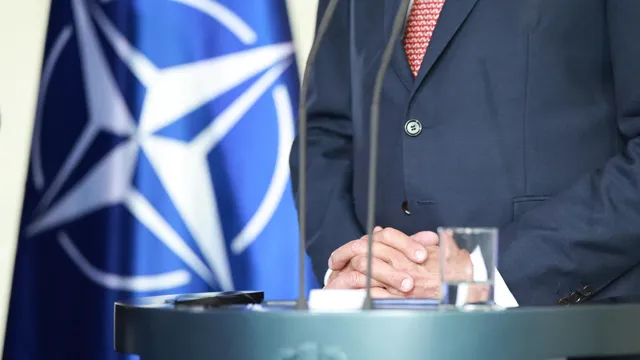Donald Trump took a significant risk before his own public by directly involving the United States in the conflict with Iran. Barely more than a third of Americans support the recent strikes against Iran, while the majority call for the country’s immediate disengagement from the conflict. Only a third believe these strikes will make America safer.
More broadly, Americans are categorically opposed (69%) to any military engagement by their country in the Middle East unless there is a direct threat against the United States. Beyond the overwhelming opposition among Democrats, independent voters also criticize America’s involvement. Even more problematic for Donald Trump is the deep division within the Republican electorate: although 71% approve of the strikes, as many as 42% (versus 40%) call for the immediate withdrawal of American forces.
In this context, it becomes clear why there is such an intense battle over public opinion regarding the results of the strikes. The IPSOS survey was conducted on the day of the strikes and in the following two days, and it remains to be seen how American attitudes will shift after this information campaign. It also becomes understandable why Trump authorized Benjamin Netanyahu for just one series of strikes, after which he imposed an immediate ceasefire with Iran.
Obvious divisions
The division within Trump’s own closest circle also matters, as does his election promise not to involve the American military in foreign conflicts anymore. In this sense, it can be expected that the president will refrain from new military interventions in the Middle East and will strive to maintain the truce for as long as possible.
Overall, Americans are critical of Donald Trump’s foreign policy: barely more than one in three approve of it, and even among his own voters, support stands at only about three-quarters. Regarding Russia, Ukraine, Iran, or Israel, the data are similar. When it comes specifically to Ukraine, the majority disagree with the statement “Ukraine’s problems are none of our business and we should not interfere.”
Even more troubling for Trump is the almost even split within his own electorate: 45% of those surveyed express disagreement with this position. This means that the president will face difficulties if he decides to completely withdraw from Ukraine, even though that is probably his wish. A particularly strong rift is observed between Trump and Americans regarding Russia and Vladimir Putin.
An overwhelming majority of Americans do not trust either Russia or Putin — just like the populations of other NATO member states. Here, America is no exception. Americans even have slightly more trust in Ukrainian President Volodymyr Zelensky than the average among other countries. Furthermore, a Quinnipiac poll conducted from June 5 to 9 among 1,265 people shows that 62% (versus 29%) believe that American troops should intervene if Russia attacks a NATO member state — including a majority among Republicans (54%).
Attachment to NATO
These data highlight the contrast between Trump’s position and American public opinion regarding NATO. Americans’ attachment to the alliance sharply contrasts with his rejection of it. This is also confirmed by Pew Research Center’s study on attitudes toward NATO in 25 member states.
Here too, American public opinion does not differ significantly from the average in other countries: 66% (versus 30%) of all respondents have a positive view of NATO, while among Americans these figures are 60% versus 37%. |BGNES
---------------------------------
Analysis by Slate

 Breaking news
Breaking news
 Europe
Europe
 Bulgaria
Bulgaria







